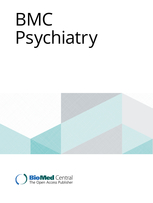 “Cannabis-based medications are being increasingly used for the treatment of different clinical conditions.
“Cannabis-based medications are being increasingly used for the treatment of different clinical conditions.
Among all galenic formulations, olive oil extracts from medical Cannabis are the most prescribed ones for their easy preparation and usage. A great variety of methods have been described so far for the extraction of medical Cannabis oils to reach a high yield of Δ9-tetrahydrocannabinol (Δ9-THC), but poor attention has been paid to the preservation of the terpene fraction from the plant, which may contribute to the overall bioactivity of the extracts.
In this context, the present study was aimed at the chemical characterization of different medical Cannabis oils prepared by following both innovative and existing extraction protocols, with particular attention to cannabinoids and terpenes, in order to set up a suitable method to obtain an extract rich in these chemical classes. In particular, six different extraction procedures were followed, based on different techniques, of which all but one included a decarboxylation of the plant material.
The profile of cannabinoids was studied in detail by means of HPLC-ESI-MS/MS, while terpenes were characterized by means both GC-MS and GC-FID techniques coupled with solid-phase microextraction operated in the head-space mode (HS-SPME). An innovative method that is based on the extraction of the oil by dynamic maceration at room temperature from plant inflorescences, which were partially decarboxylated in a closed system at a moderate temperature and partially pre-extracted with ethanol, produced similar yields of bioactive compounds as that obtained by using a microwave-assisted distillation of the essential oil from the plant material, in combination with a maceration extraction of the oil from the residue.
Both these new methods provided a higher efficiency over already existing extraction procedures of medical Cannabis oils and they can be applied to obtain a product with a high therapeutic value.”
https://www.ncbi.nlm.nih.gov/pubmed/32334134
“New methods were developed for the extraction of medical Cannabis oils.”
https://www.sciencedirect.com/science/article/abs/pii/S0731708520303897?via%3Dihub









